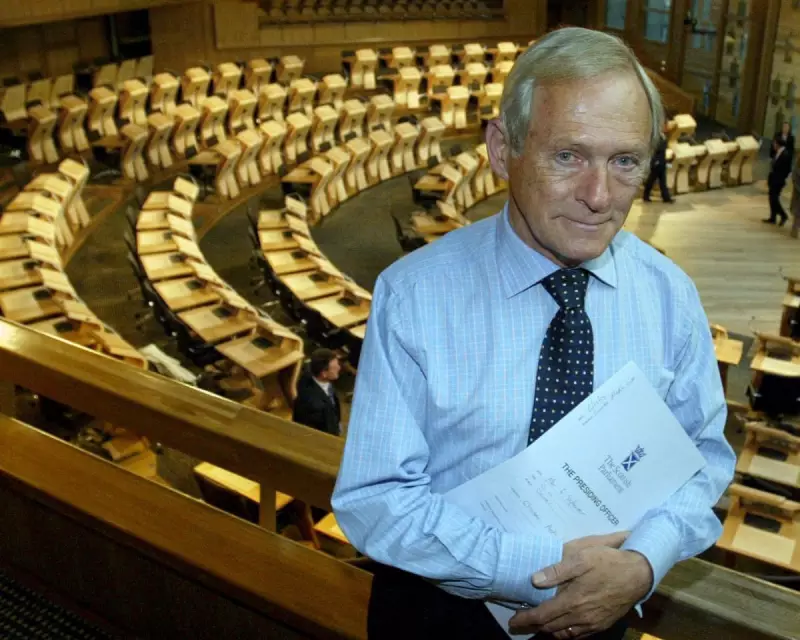
The Scottish political landscape has lost one of its most respected figures with the passing of Sir George Reid, the inaugural Presiding Officer of the Scottish Parliament, at the age of 86. A man of principle and pragmatism, Reid's remarkable career traversed nationalism, unionism, and ultimately, a revered role as a neutral arbiter of Scotland's democratic rebirth.
Born in Tullibody, Clackmannanshire, Reid's journey into politics began not in the corridors of power, but on the front lines of journalism. This foundation in reporting gifted him a unique perspective he would carry throughout his life—a deep understanding of narrative and public service.
From SNP Firebrand to Holyrood's Steward
Reid's political evolution was as fascinating as it was unique. First elected as a Scottish National Party MP for Clackmannan and East Stirlingshire in 1974, he was part of the famed group that brought the SNP to prominence. Yet, his vision for Scotland transcended pure partisanship.
After a period away from elected politics, during which he honed his skills in diplomacy and international aid with the Red Cross, Reid returned a changed man. Elected as a list MSP for Mid Scotland and Fife in 1999, he was a natural choice for the role of Deputy Presiding Officer. He brought a gravity and procedural wisdom that was crucial in the fledgling parliament's early years.
His crowning achievement came in 2003 when he was elected Presiding Officer, succeeding Sir David Steel. Reid approached the role with a reforming zeal, determined to make Holyrood more accessible, efficient, and relevant to the people it served.
The Architect of Modern Holyrood
Sir George is widely credited with rescuing the Scottish Parliament's reputation from the quagmire of the Holyrood building project. He took firm control of the spiralling costs and delayed construction, steering the project to its eventual completion with a determination that earned cross-party respect.
Beyond the bricks and mortar, he reformed parliamentary procedures, championed the powerful committees that define Holyrood's policy-making strength, and fiercely defended the institution's integrity and independence. He was a staunch advocate for transparency, famously battling the UK government to ensure Scottish ministers were accountable to their parliament first and foremost.
Colleagues remember him not just as a presiding officer, but as a teacher of parliamentarianism, instilling a culture of respect and rigorous debate in the new institution.
A Legacy of Service and Consensus
After stepping down in 2007, Reid's expertise remained in high demand. He served as the Scottish History Tsar, championing the preservation of the nation's archives, and conducted a landmark review of the Scottish criminal justice system for the SNP government.
His later years saw him return to his international roots, serving as the Chancellor of the University of the Highlands and Islands and contributing to global humanitarian efforts. Knighted in 2011 for his public and political service, Sir George Reid remained, until the end, a devoted servant to Scotland.
He is survived by his wife, Daphne, and their family. His passing marks the end of an era for Scottish politics, leaving behind a legacy of dignified leadership, unwavering principle, and the enduring architecture of a modern parliament.





